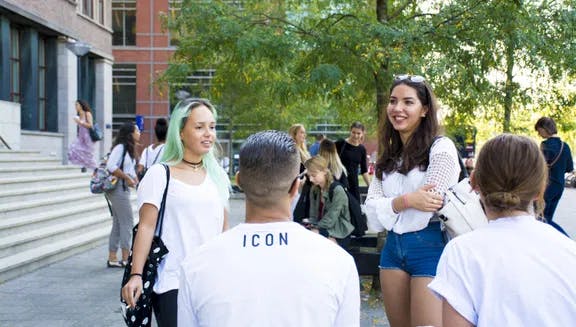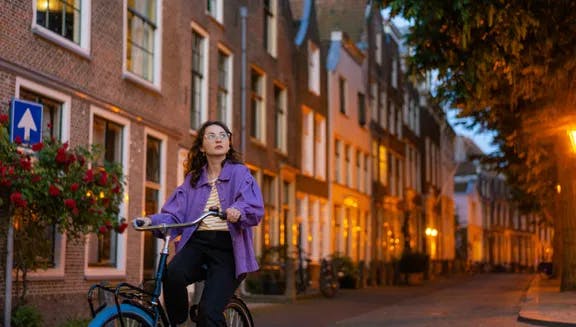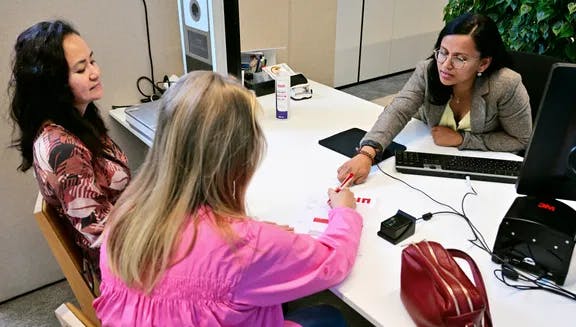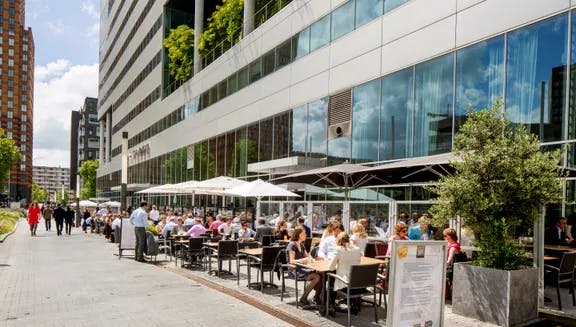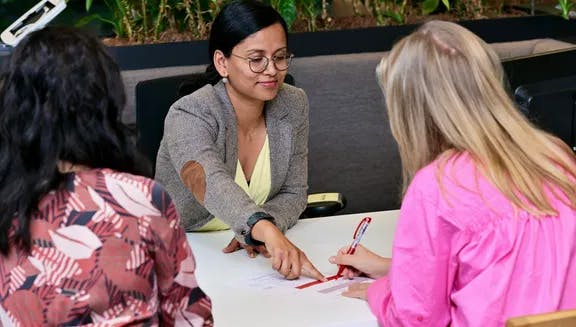
Steps to study in Amsterdam
Applying to study in the Amsterdam Area
Browse the extensive list of universities and vocational institutions in Amsterdam. Read up on courses that interest you and check the entry requirements. Many institutes hold open days where you can get a feel for student life on campus, so it's always a good idea to attend if you can. Once you’ve answered ‘what are you going to do with your life?’ and other existential questions, you'll need to enroll: here's how to do it.
1. Check that you meet the entry requirements
Courses all have their own sets of entry requirements, so always check these carefully and pay close attention to the closing dates for application. Art schools and creative studies may ask for a portfolio of your work, for example. You can compare your country’s qualifications with the Dutch equivalent via the Nuffic website to make sure your hard work doesn’t get lost in translation.
2. And the language requirements
Dutch universities and other education providers offer plenty of courses in English. To follow these, it is essential that you read, speak and write the language to a high level. If English is not your first language, evidence of passing an English test such as IELTS or Cambridge English is usually required.
3. Consider a preparatory year
If you’re not quite there yet, your conditional letter of acceptance allows you to come to the Netherlands for a year prior to your studies to pass a preparatory course. A preparatory year can help you level up your English or Dutch or improve knowledge of the subjects required for the basic course. Contact the Dutch higher education institution of your choice for more information.
4. Search for a scholarship
Get some assistance with your course fees by applying for scholarships. It is worth contacting the Dutch embassy in your home country to see which grants and funding possibilities are open to you. Search for scholarships and explore your financial options.
5. Accept your letter of offer and receive confirmation of enrollment
Keep an eye on your inbox for exciting news. The university will keep you informed on course start dates and how to pay the first installment of your tuition fees.
6. Apply for your visa and residence permit
In most cases, the university will help you organise a visa and residence permit (if required) once you have been enrolled in a programme. For this to happen, you will need to ensure you have the correct paperwork and proof of identity. Learn more about what’s required.
Things to arrange before arrival
Once your heart is set on studying in the Amsterdam Area, it’s time to prepare for the exciting journey ahead.
7. Get to know the Amsterdam Area and look for housing
Finding your new home in the Amsterdam Area can take some time, so it’s best to start early. Demand for student housing typically outstrips supply and it is advised to arrange accommodation before arriving in the Amsterdam Area. Read up on how to find student housing.
8. Track down important documents
First of all, make sure your passport is valid for at least the next six months. At your registration appointment, you will need to produce your birth certificate, and it may need to be officially authenticated depending on which country you are from. This is much easier to do before you leave home. Pack your driver’s licence for identification and find out if your country's licence is valid for driving a vehicle in the Netherlands - or if you didn't already, start practising with that bicycle, the best way to get around town!
9. Check out the Intro Week events
Intro Week is a crucial part of studying overseas. It’s the perfect opportunity to make friends and memories before studies begin. Find out what your university or college has planned as registration can fill up quickly as many activities limit the number of participants.
10. Pack for all seasons
If you’re arriving before the September semester, the weather in Amsterdam can be wildly unpredictable. Pack for warm and cold days, bring shoes you can cycle in (you’ll master heels soon enough) and don’t forget an umbrella.
11. Start learning Dutch
Although Amsterdammers speak English very well, learning a few Dutch phrases will help you to integrate and feel more at home: 'goedemorgen' (good morning), 'goedemiddag' (good afternoon), 'bedankt' (thank you), 'lekker' (tasty) and 'gezellig' (a word that doesn’t translate easily, similar to ‘cosy’ but more of a feeling) will start you off. Apps like Duolingo are a popular way to learn for free. Or sign up for a course: see our tips on learning Dutch.
Things to do on arrival
12. Get familiar with official processes
Once you arrive in the Netherlands, you will need to register with the municipality you will live in. At this appointment, you will receive a BSN number which is required for working or opening a bank account in the Netherlands. You will also need to arrange mandatory health insurance. International students can usually keep their insurance from home, if it covers them being abroad, or use the European Health Insurance Card (for EU, EEA and Swiss citizens). But it’s important to note that if you have a (part-time) job next to your studies, or are doing an internship where you earn at least the Dutch minimum wage, you need to take out Dutch health insurance, even if you’re covered elsewhere.
13. Organise fee payment and open a Dutch bank account
To organise payment with the university you’ll need to open a Dutch bank account while you’re here, as many shops and restaurants only accept payment by cash or debit card (pinpas).
And now all that's left is to have the time of your life as a student in Amsterdam! Remember to enjoy your time and be proactive. When the time comes to do your internship, check out our guide on where to find internships and how to make the most of it!
Get to know the Amsterdam Area with IN Amsterdam
Sign up for our monthly newsletter dedicated to internationals in the Amsterdam Area. Each month we’ll keep you in the know with a handpicked selection of helpful articles, invitations to events, opportunities to meet other internationals and tips for making Amsterdam your new home.
✔ A guide to events and activities in English✔ Invitations to free info sessions and workshops✔ News updates affecting international residents✔ Tips for relocation and living in the Netherlands✔ Stories from Amsterdam and the region

